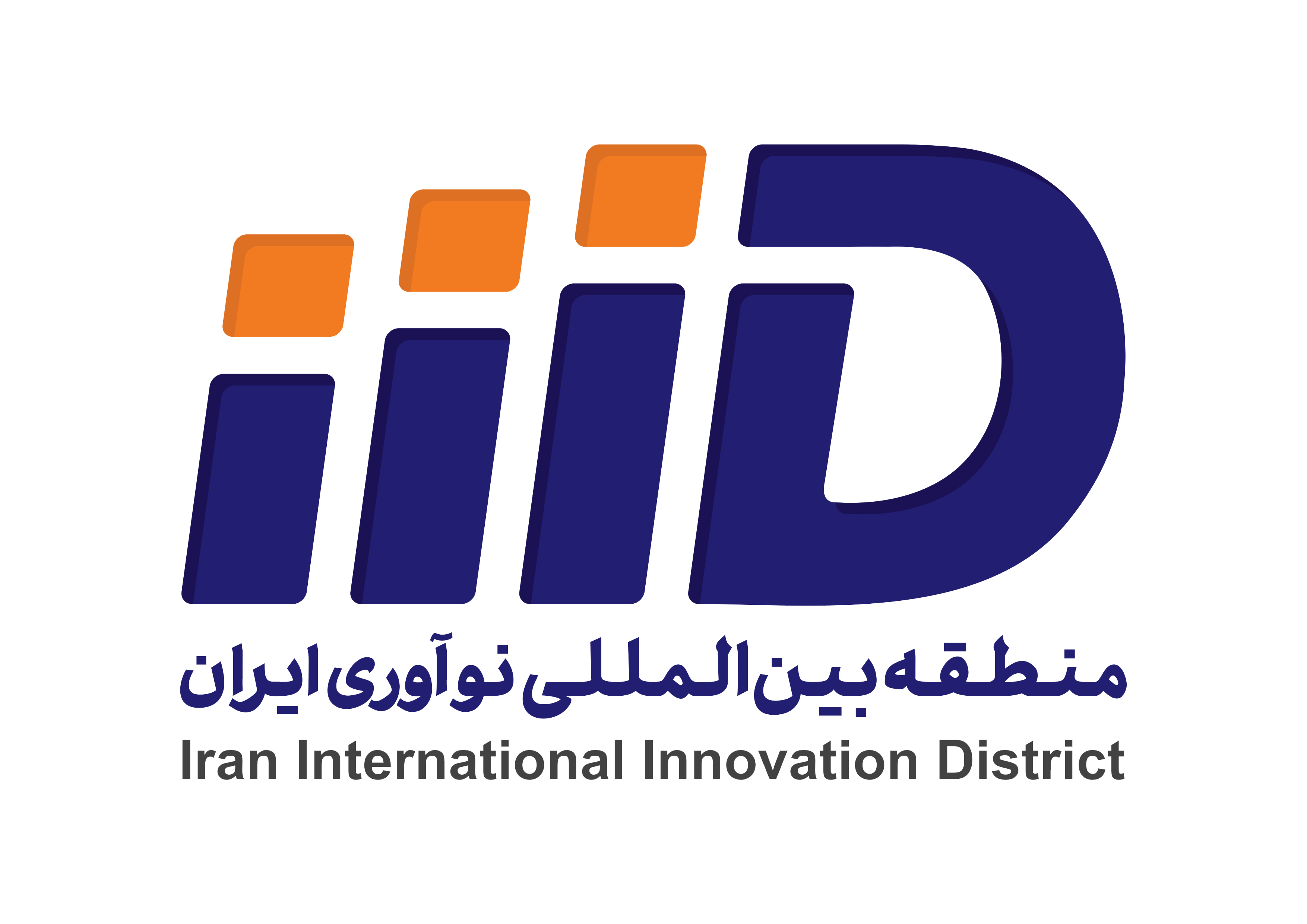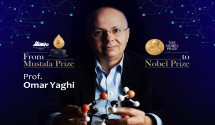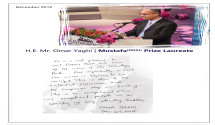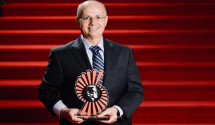Global pioneer in reticular chemistry honored with highest recognition in science
Mustafa Prize laureate wins 2025 Nobel Prize in Chemistry
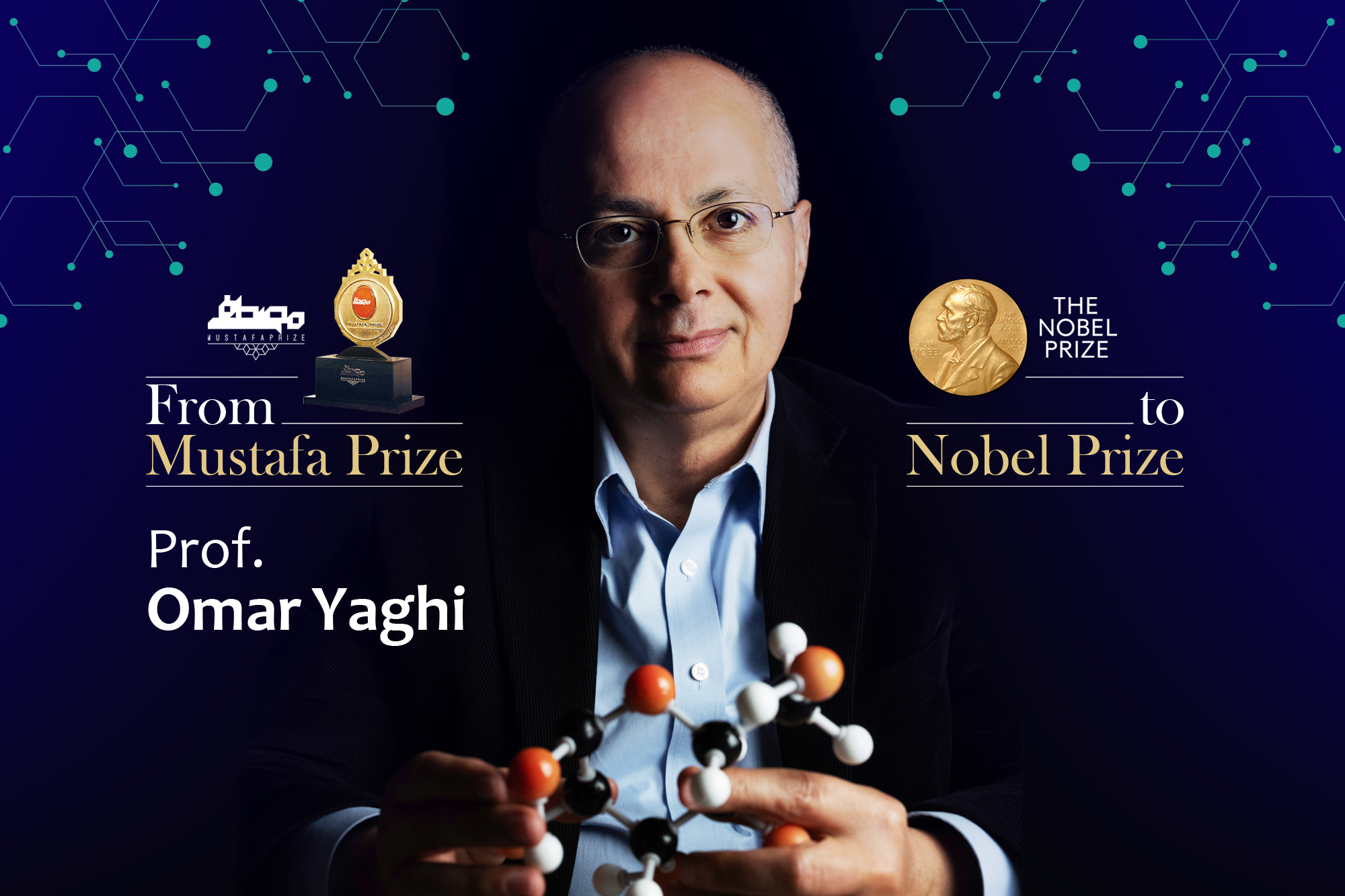
Professor Omar Yaghi of UC Berkeley, recipient of the inaugural Mustafa Prize (PBUH) in 2015 for his groundbreaking work in nanotechnology, has been awarded the 2025 Nobel Prize in Chemistry for his pioneering research in designing and developing metal-organic frameworks (MOFs).
Born in 1965 in Amman, Jordan, Professor Omar Yaghi obtained his higher education degrees from New York University and the University of Illinois, later holding teaching and research positions at leading U.S. institutions including Harvard, Arizona, Michigan, UCLA, and Berkeley. He has earned numerous international honors such as the Sacconi Medal (2004), the Hydrogen Research Award (2007), the ACS Materials Chemistry Award (2009), and the King Faisal International Prize (2015). With more than 200 published scientific papers, Yaghi ranks among the top five chemists in the world.
From 1998 to 2005, Yaghi served as a professor at the University of Michigan and UCLA, and from 2006 to 2011 continued at UC Berkeley, where he currently holds a professorship in chemistry. His innovative work has led to major advances in designing porous crystalline materials—metal-organic frameworks (MOFs) and covalent organic frameworks (COFs)—and founding the field of reticular chemistry. These materials have transformative applications in clean energy storage, water and air purification, carbon dioxide capture, molecular separation, and advanced drug delivery systems.
In 2015, Yaghi visited Iran to receive the Mustafa Prize (PBUH) and toured Pardis Technology Park, a major hub within the Iran International Innovation District (IIID). In the park’s guestbook, he described it as “an exceptional place with exceptional people in a country with deep traditions,” recognizing the commitment of talented researchers and emerging companies that bring visionary goals to life.
His MOFs, with their unparalleled porosity and massive internal surface area, have enabled breakthroughs such as hydrogen and methane storage for clean energy, CO₂ capture from power plant emissions, and uses in biomedical imaging and therapy. Yaghi also pioneered scalable synthesis routes for MOFs, facilitating their adoption by industry for applications ranging from water harvesting to smart drug delivery.
In 2017, Yaghi was awarded the Albert Einstein World Award of Science by the World Cultural Council, recognizing his scientific contributions and innovations. Today, his ongoing link to IIID—where his bust stands among other celebrated scientists—symbolizes an enduring bridge between Iran’s innovation ecosystem and the global scientific community.
Quick Access

Address: Pardis Technology Park, 20th km of Damavand Road (Main Stresst), Tehran I.R. Iran.
Postal Code: 1657163871

Tel: 76250250 _ 021

Fax: 76250100 _ 021
E-mail: info@techpark.ir

website:iiid.tech
